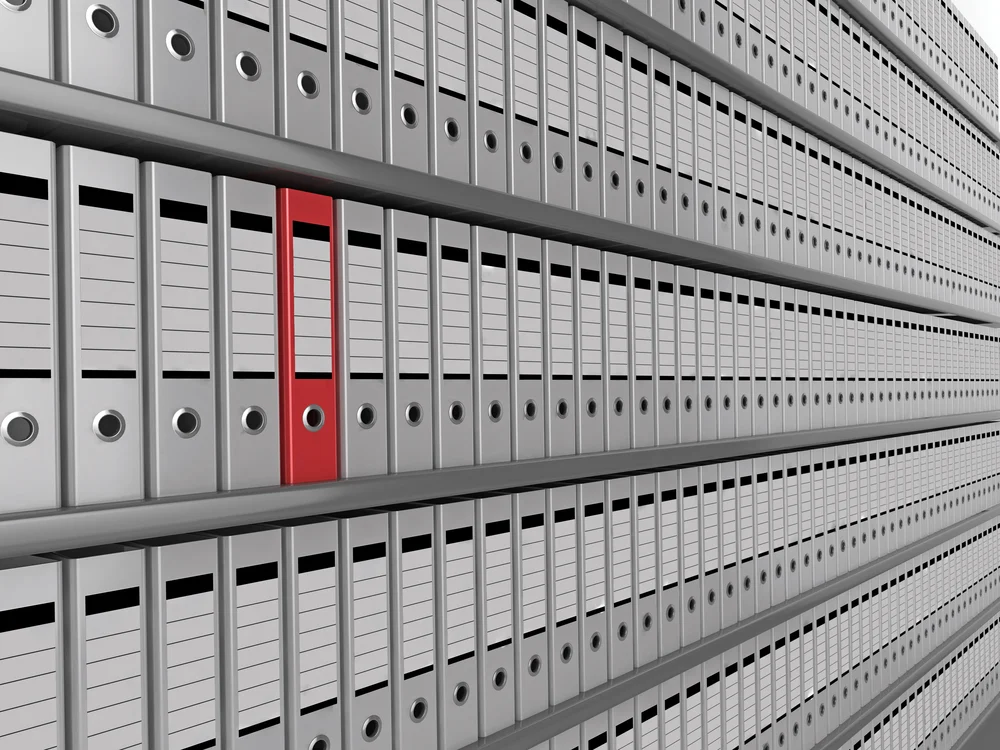Organizations are responsible for maintaining a wide variety of records, including:
- their own financial records, like bank statements, invoices, tax returns, receipts, expense reports, and more
- the employment records of their employees, like applications, resumes, benefits applications, direct deposit forms, doctor’s notes, etc.
- the records of their clients, which might include addresses, phone numbers, names, dates of birth, credit card numbers, bank account numbers, protected health information, or other confidential data depending on industry
- propriety business information like strategy documents, prototypes, business cases, analyses, and other business records
Retaining documents that contain confidential information for longer than necessary poses a business risk. If the wrong person accesses these records, it can put your organization, its employees, or its customers at risk. Understanding records retention guidelines and drafting a records retention policy for your organization can help you ensure you destroy documents safely when they reach end of life.
Retaining Record Guidelines
How long you should retain each type of record depends on state and federal guidelines for that particular document or your specific industry. As a general guide:
- maintain legal documents like deeds, trademark registrations, patents, business formation records, bills of sale, etc. indefinitely
- retain federal business tax returns for 3-7 years after filing, depending on the situation (unless you don’t file or file fraudulently, in which case you should retain indefinitely)
- retain accounting records and bank statements for at least seven years
- keep personnel records according to federal records retention guidelines; certain components should be retained longer than others
- retain payroll records for at least three years
- keep insurance cards, licenses, and permits on file until they expire and you receive a replacement
- retain recruitment and hiring documentation like job postings, resumes, applications, and interview scoring sheets on file for at least a year
Many industries work with special records in addition to the types listed above, like medical records in the healthcare industry or transcripts in academia. Be sure to research record retention guidelines in your industry, too.
Retaining Records Policy
After you’ve identified the appropriate timelines for your industry, it’s time to draft a record retention policy to standardize storage, retention, and destruction in your organization. Your policy should cover:
- how records are securely stored in order to prevent unauthorized access during the retention period (whether electronic or paper files)
- at what point records are destroyed (i.e. how long each type of record is retained)
- how records are securely destroyed when their retention period has concluded, including what criteria a vendor should meet in order to be selected for document destruction
You can find a sample record retention policy template online and revise it to meet your needs.
Contact Royal Document Destruction
Royal Document Destruction has been providing secure document and hard drive destruction in Ohio, northern Kentucky, and eastern Indiana for over 25 years. Reach out to our team today to find out how we can help your organization keep its employees and customers safe through trusted, secure document destruction services.







